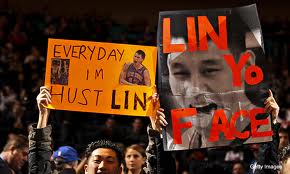

Ted Cruz gave a press conference the day after his keynote speech at the RNC, which had ended with a ringing non-endorsement of the party’s nominee, Donald Trump. Some in the audience were upset that he wasn’t being a good “team player,” and was acting like a “sore loser.” Others noted that he had signed a pledge, earlier in his Primary campaign against Trump, to support the party’s nominee in the general election. (See the reporting in Politico.) His response:
“This isn’t just a team sport, we don’t just put on red jerseys, blue jerseys, and yay! This is about principles, ideas, standing for what we believe in.”
And what are the “principles” that justify nullification of his earlier commitment? It is possible that they are the political principles that he takes to be sacred for the Republican party:
“the standard I intend to apply [when he casts his ballot] is which candidate I trust to defend our freedom, be faithful to the Constitution.”
But he seems clearly more emphatic when he cites not political principles but a chivalrous code from everyday morality: you defend your family’s honor!
“I am not in the habit of supporting people who attack my wife and attack my father. And that pledge was not a blanket commitment that if you slander and attack Heidi I’m going to nonetheless go like a servile puppy dog” and stick to the pledge anyway.
“You gotta get over it!” one man in the audience yelled.
“This is not a game … right and wrong matter,” Cruz shot back, as he also argued, “I would note, sir, you might have a similar view if someone was attacking your wife. I hope you would.”
The question of whether defending his family’s honor was reason enough to stay on the sidelines for now was a matter of heated debate in the hallways of the over-air conditioned Marriott outside the ballroom where Cruz spoke.
If “defending family honor” is indeed Cruz’s justification for a bold move that undermines his “team’s” chances of winning an important contest, it is not obvious that this helps distinguish politics from team sports. Who can forget Zinedine Zidane’s infamous head-butt, 10 years ago this month?
This is the biggest Football World Cup controversy ever. It was 19 minutes into the extra time of the final match of the 2006 world cup when Zinedine Zidane, one of the best soccer players of all time, left the whole world in awe. In one sudden move, the French head-butted Marco Materazzi of Italy for allegedly hurling spiteful words at him.
…
Materazzi admitted to have said, “I prefer the whore that is your sister”. He goes further to note there are more harsh words exchanged between players in the field and Zidane had heard worse of them before. Well, the fatigue felt way into the second half of the extra time was the ultimate trigger for him.
Zidane said the words were too hurting and Materazzi kept repeating them causing him to lose his cool. In that split moment of anger, Zidane turned back, leaned forward and rammed his head into the chest of the player.
Zidane was shown the red card. Without their best player on the pitch when the match ended in a draw, France lost to Italy in the ensuing penalty shoot-out. At the time of posting, the implications of Cruz’s head-butt on the general election result for his party are unknown.








